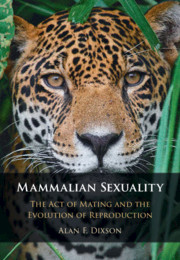Book contents
1 - Quo Vadis?
from Part I - Carnival of the Animals
Published online by Cambridge University Press: 20 May 2021
Summary
Representatives of the Class Mammalia are to be found on every continent, and in every ocean of the world. They comprise a handful of extraordinary egg-laying species (the monotremes), as well as 7 orders of marsupials and 19 orders of placental mammals. Phylogeny, and modes of life, as well as sexual selection (via sperm competition and cryptic female choice) have all profoundly influenced mammalian reproductive biology. The reproductive adaptations of these animals have been forged over vast spans of time, beginning some 297–252 million years ago, during the Permian Period, when one branch of the synapsid reptiles (the Therapsida) gave rise to the furry, warm-blooded forerunners of the Class Mammalia (Kemp, 2005). Some therapsids survived a major extinction event that occurred at the close of the Permian; their modern descendants include the echidnas, kangaroos and possums, elephants, whales, rodents, bats and primates, as well as a host of other taxa.
- Type
- Chapter
- Information
- Mammalian SexualityThe Act of Mating and the Evolution of Reproduction, pp. 3 - 5Publisher: Cambridge University PressPrint publication year: 2021

